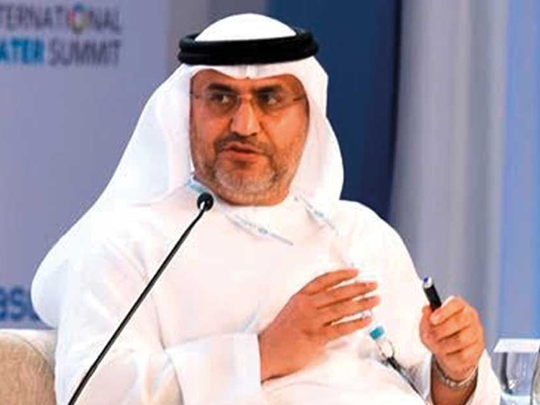
Abu Dhabi: Increased share of rooftop solar power and prevention of more than a thousand power blackouts in the UAE in recent years have been possible due to digitisation in the energy sector, a senior official said here on Wednesday at Abu Dhabi Sustainability Week.
Two hundred megawatts (MW) of rooftop solar power will connect to the UAE’s grid by the end of this year, said Dr Mattar Al Niyadi, undersecretary at the UAE Ministry of Energy, during a panel discussion on ‘Technology, disruption and digitisation’.
Technologies and digitisation have reshaped the business in the energy sector. “For example, we used to have only public utilities that generated electricity. Now consumers can also do it. In the UAE, we expect that 200MW rooftop solar power will feed the grid by the end of this year,” he said.
Electricity’s mobility is another example. If one power system fails in a Gulf nation, another system can immediately swing into action within seconds and supply power to the failed system, without giving any hint about a blackout.
“It prevented 1,300 power blackouts in the country since the GCC power grid came into existence in 2009,” Al Niyadi said.
The consumer does not come to know about such possible interruptions at all. Only the man sitting in the control room knows about such incidents as he immediately sources the supply from another power system in the GCC grid, he explained.
“This would not have been possible without digitisation,” the official said.
The flow of electricity will further change with technological advancements. “The way we do business in the energy sector will be completely changed.
“There will be some sort of connection between your [electric] car and your house. You can generate electricity in your car and connect it to your house [to power the home system] and other way round.”
However, the official said, these benefits do not come without any risks.
“We know the risks involved in digitisation.” He said the energy sector assets are prone to cyber attacks. It may come from far away or within. “This has to be discussed in the international context and we should have some sort of code of conduct to deal with such cyber attacks that may occur time to time,” Al Niyadi said.












